FAQ asked About Data science in 2023


data science faq
What is Data Science?
What is Data Science?
Data science is an interdisciplinary field that combines methods from mathematics, statistics, computer science, and information technology to gain insight from large amounts of data. It involves manipulating and analyzing data to uncover patterns, trends, and insights. Data scientists use their expertise to solve complex problems and find answers in the data that can lead to better decision making.
Uses of Data Science
Data science can be used in a variety of ways to gain insight. It can be used in marketing, engineering, finance, operations, healthcare and many more industries. In each industry it can be used for a range of tasks including customer segmentation and churn prediction; predicting demand for products or services; optimizing logistics networks; predicting risks associated with disease outbreaks; developing AI assistants; and forecasting financial performance.
Impact on Industry
Data science is having a major impact on all industries. By combining advanced analytical techniques with massive amounts of data it helps organizations make better decisions faster than ever before. With the help of data science companies are able to unlock massive amounts of value from their data – driving innovation in their businesses and gaining competitive advantage in the marketplace.
Essential Skill Sets
Data scientists need a well rounded set of skills to be successful. These include problem solving skills, knowledge of mathematics and statistics, programming languages such as Python or R, database querying languages like SQL, machine learning algorithms such as random forests or neural networks; familiarity with big data tools such as Apache Hadoop or Apache Spark; experience with cloud computing platforms such as AWS or Azure; the ability to work with unstructured data formats like text or images; strong communication skills
What Are the Benefits of Data Science?
One of the major advantages of data science is data driven decision making. By leveraging large datasets, businesses can make better decisions across various departments and gain valuable insight into their customers, employees and market conditions. Data science can also help with predictive modeling by providing detailed predictions about future outcomes for improved accuracy in planning and forecasting.
The use of data science can also result in improved customer experience as well as cost savings for business owners. With access to customer trends and behaviors, companies can develop personalized services and products tailored to individual needs as opposed to generic ones offered on the market. Additionally, through automation, businesses have experienced improved efficiency due to reduced manual labor hours and time consuming activities such as billing processes or customer service actions.Investment Banking Course Manchester
In addition to cost savings and improved efficiency, companies are able to gain a better understanding of the market thanks to data science insights. This allows them to stay updated with industry trends and better position themselves against competitors for maximum market penetration and profits. Furthermore, with an increased focus on quality assurance, businesses are able to provide enhanced services for their customers due to greater oversight into product performance metrics or customer satisfaction rates collected from analytics tools made possible by data engineering tools applied within the domain of data science practices
What Qualifications Do I Need to Become a Data Scientist?
Here is a breakdown of what you need to become a data scientist.
To start, you’ll need a Bachelor’s degree. This should be in an area related to analytics, such as mathematics, computer science, information technology or statistics. If you don’t yet have your Bachelor’s degree, then now is the time to get started.
You do not need a Master’s degree or higher to become a data scientist but it can help give you an edge on other candidates due to additional knowledge and experience. In addition to the theoretical knowledge gained during your studies, you should also focus on building handson experience with data science tools and techniques. This can be done through specific courses as well as real life examples like working on independent projects or consulting gigs where you’ll need to use these skills in practice. Data Science Course Manchester
Lastly, being proficient with programming languages is going to be essential for a successful data scientist career path in 2023. While there isn’t one particular language that is necessary for the job position it would definitely be beneficial if familiar with one or more of the following languages: Python, R, Java and SQL. Having familiarity with each of these tools will make it easier for you when applying for jobs and allow employers to see that your skillset covers all the necessary basics required of a successful data scientist in 2023.
How Do I Get Started With Data Science?
Here are some key things to consider as you embark on your data science journey.
- Understand fundamentals: To begin your journey into data science, it’s important to gain a fundamental understanding of the concept. Start by learning the basics of data analytics, such as relational databases and statistical inference. Doing a course or reading a book will give you a good base to build upon.
- Learn programming language: Having the ability to code is an essential tool for any aspiring data scientist, so it’s important that you choose a programming language that suits your needs and accelerates your growth. Python and R are two of the more popular languages used in this field; therefore, it is important that you familiarize yourself with these and develop your coding skills over time.
- Apply Mathematics & Statistics: As well as being able to code, having a strong knowledge in mathematics and statistics is essential for working within data science; so, if necessary brush up on your calculus or linear algebra skills where needed before diving into projects!
- Acquire data analytics skills: Becoming confident with forecasting tools such as Excel or SAS will allow you to analyze datasets quickly while also developing good habits when dealing with large amounts of information; so invest time in mastering techniques like pivot tables or predictive modeling techniques which will be useful later down the line when tackling bigger projects.
What Kind of Projects Can I Expect to Work On As a Data Scientist?
Data Science involves working with data, which includes cleaning, understanding, modeling and interpreting it in meaningful ways. Depending on the context in which a data scientist operates, their projects will differ significantly.
When working with data, cleaning is important; this means that you’ll need to filter out unnecessary or erroneous information from a dataset. You’ll also need to identify any patterns or correlations between different data points to determine how best to utilize it for future analysis. Once this is done, you can begin exploring various methods of modeling and analyzing your datasets by using powerful machine learning algorithms and other tools such as Python and R programming. Afterwards, your job may involve interpreting the results and presenting them in an easy to understand format so that business stakeholders can make sense of them.
Another common task that many data scientists work on is building predictive models – these are used to make predictions about future trends based on existing datasets. This involves creating programs that can analyze historical patterns and draw conclusions about how certain factors might affect future outcomes. It requires an extensive knowledge of statistical analysis techniques combined with experience in utilizing predictive algorithms such as linear regression or neural networks. Full Stack Development Course London
Overall, as a data scientist you can expect to work on many different projects but they all have one common goal: to help businesses gain valuable insight from their datasets so that better decisions can be made in the future.
Will Data Science Be Relevant in 2023?
The world of data science is continuously evolving and expanding, so it’s only natural that people are curious about what the future holds. With rapid advancements in artificial intelligence (AI) technology and the growing popularity of big data, the questions “Will data science be relevant in 2023?” and “What does the future of data science look like?” remain on everyone’s minds.
So let’s take a closer look at what the future may hold for data science in 2023. We can confidently say that data science will still be highly relevant and have a prominent role to play within businesses and organizations. As AI tools continue to become more sophisticated and cheaper, they are becoming more widely used in everyday tasks. This has increased the demand for skilled workers with experience in data analysis, machine learning, and other related fields. Additionally, automation has been greatly expanding its reach into various industries as a way to improve efficiency and reduce costs.
At the same time, the use of big data will only continue to grow as companies use this resource to their advantage for customer insights and market analysis. We can expect these technologies to become even more advanced within 10 years so there will likely be an increasing need for those with an understanding of working with large datasets. Companies looking to optimize operations will require employees who understand how to use big data effectively as well as have problem solving skills when confronting any issues that arise during analysis.
Moreover, laws regulating how businesses handle user information is also expected to change over time since privacy concerns are becoming increasingly widespread across many different countries.
What Are Some Potential Career Paths For A Data Scientist in 2023?
Here are some potential career paths that could be available for a data scientist in 2023:
- Automation: As automation becomes more commonplace, there will be an increased demand for data scientists who can develop and implement automated systems for businesses. From customer service bots to robotic process automation to self-driving cars, data scientists will be needed to craft the algorithms driving these systems.
- Machine Learning: Machine learning is increasingly being used as part of automated systems and programs, so understanding and working with machine learning will become a key part of being a successful data scientist in 2023. You’ll need a deep understanding of algorithms and programming languages like Python to succeed in this field.
- AI: Guiding artificial intelligence (AI) as it is applied across different industries will also be an important job for data scientists in 2023. This could include helping craft AIdriven models for predicting customer behaviors or driving decisions about investments or healthcare treatments based on past data.
- Business Analytics: Analyzing large sets of business data will continue to be an important role for a data scientist because it helps organizations make better decisions about their operations and markets they serve. These professionals must remain updated on the latest software tools and techniques so they can quickly provide insights about complex datasets.
- Data Visualization: Data visualization is essential for extracting key insights from big datasets so that stakeholders can easily understand the implications of their findings. A successful data scientist in 2023. Investment Banking Course London
Tips and Strategies for Succeeding as a Data Scientist in 2023
Here are some tips and strategies for succeeding as a data scientist in 2023.
One of the most important prerequisites for success as a data scientist is to be well versed in data engineering. This involves understanding how to access, store, process, and analyze data using the latest software and tools. Familiarize yourself with the most popular programming languages like Python and R, as well as the most popular database technologies such as Oracle or MySQL. Additionally, you should have a clear idea of how machine learning algorithms work and be able to apply them when needed.
When it comes to working with datasets, knowledge of statistics is critical. Learn how to apply different statistical methods such as regression, clustering, or classification on various types of datasets. Make sure you understand basic mathematical concepts such as probability, calculus, and linear algebra that form the foundation for effective analysis of data.
In addition to developing technical skills, communication skills are essential for successful careers in data science. Learning how to effectively share insights gained from your analyses will help you become an effective asset in any organization’s decision making process. Learn how to use storytelling techniques when presenting your findings so they’re easier for your peers and superiors to digest. Additionally, familiarize yourself with different visualization techniques that help bring complex ideas into focus quickly.
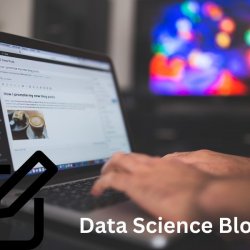
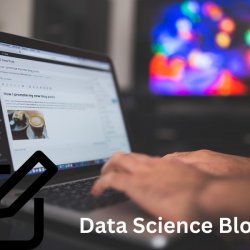
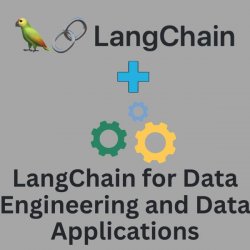
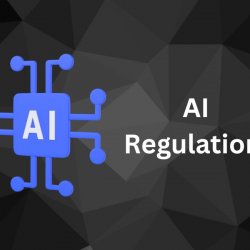
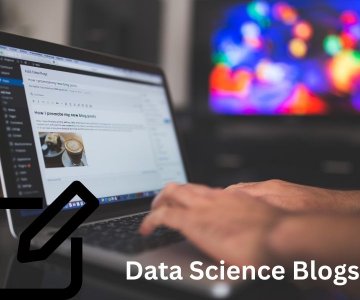
Ingen kommentarer endnu